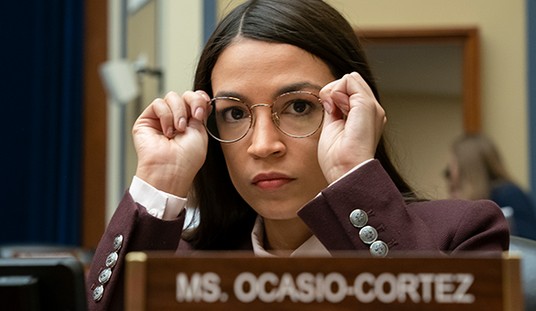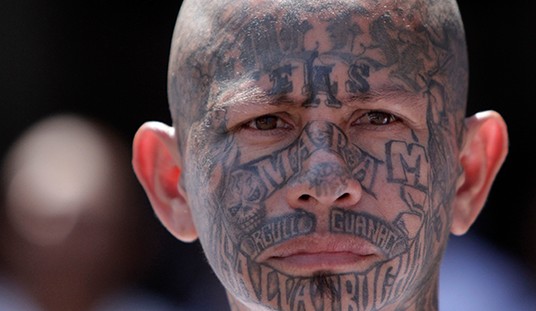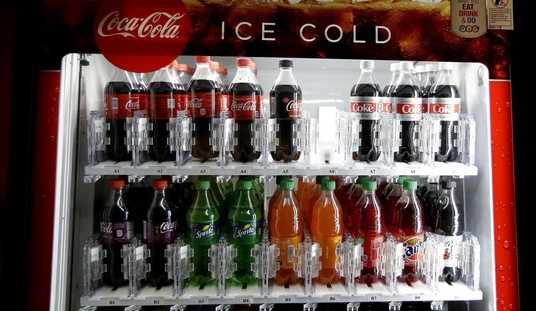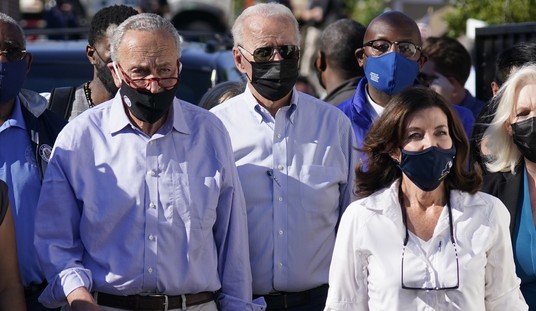Who knew that a beauty pageant could be brimming with so much socio-political insight? The Miss USA pageant on Sunday gave us not one, but two, remarkable observations on the state of the Union.
First, here’s Miss Alabama, Mary Margaret McCord, offering her thoughts on the surveillance state: “I think the society that we live in today, it’s sad that if we go to the movies, or to the airport, or even to the mall that we have to worry about our safety… so I would rather someone track my telephone messages, and feel safe wherever I go, than feel like they’re encroaching on my privacy.”
Then we have Miss Utah, Marissa Powell, holding forth on the reason women supposedly make less than men in today’s society. (This is a false “fact” that won’t die no matter how often, or how thoroughly, it gets debunked. The so-called “income gap” is nothing like the way it’s commonly portrayed, but of course it’s very useful politically, so it will be repeated until everyone believes it without question, or is at least intimidated into pretending they believe it.)
Like most of America, Miss Utah has been hustled far past the point where she would challenge the premises of the question, so she fumbled out a painfully clumsy response: “I think we can relate this back to education and how we are continuing to try to strive to… figure out how to create jobs right now. That is the biggest problem, and I think especially the men are seen as the leaders of this, and so we need to try to figure out how to create education better so that we can solve this problem.”
I’ve seen a good deal of online venom directed at both of these young ladies, calling them “airheads” and such. But Miss Alabama’s statement was clear, to the point, and quite in line with the feelings of many Americans. Depending on how pollsters phrase questions about the issue, she could be said to speak for the majority. A lot of people think their privacy is worth sacrificing for enhanced security, particularly when it’s an abstract sacrifice – in other words, they don’t think the government is likely to monitor their phone calls, emails, or credit card purchases.
As for Miss Utah, if you can get past her nervous fumble of words, she’s giving a very pat answer, regurgitating themes about the “War on Women,” job creation, and education that people her age have been fed for a good chunk of their lives. She thinks the government creates both jobs and education, and she believes the former will naturally flow once more of the latter has been “created.”
What both women have in common is that neither of them thinks to challenge the inherent biases of the questions they were asked. McCord doesn’t challenge the idea that privacy and security are traded pound-for-pound. She doesn’t ask if massive, indiscriminate violations of privacy are truly necessary to obtain security. She’s not worried about academic discussions of the presumption of innocence. She probably doesn’t question the need for TSA Security Theater when she flies. She wasn’t about to grab the Miss USA spotlight to ask why all this super-surveillance didn’t catch the Boston Marathon bombers.
Likewise, Powell wasn’t going to challenge income-gap mythology, or ask if there might be more to the situation that blatant prejudice against women. She wasn’t going to ask why a nation swimming in student-loan debt also has endless high unemployment, or wonder if this challenges the notion that education automatically leads to jobs. She didn’t question the premise that jobs can be forcibly “created” by some brilliant central strategy, rather than growing in response to demand.
Most people don’t ask impertinent questions like that. They accept received wisdom, and try to appear in touch with the expectations of their conversation partners. In a format like this beauty pageant, where people with presumed authority (the pageant judges) ask loaded questions, not many people would dare to challenge their assumptions. And it’s easy enough to see what liberal popular culture has conditioned the audience to expect. Would Miss Alabaman have scored better, or won more audience applause, if she had picked apart the fine points of NSA surveillance programs and FISA courts? What if she had offered an equally simple response that made the opposite point: “Like many Americans, I’m worried about our security, but I think our privacy is also an important concern, and I’m not convinced the information harvested by these programs is being handled responsibly?”
Both of these contestants were asked questions about Big Problems that only Big Government can solve. Even if they had wanted to, they weren’t given much room to think outside the box, and answer outside the spotlight. This is not a situation unique to beauty pageant contestants. We have all grown too willing to accept a limited range of multiple-choice answers to some very complex questions.













Join the conversation as a VIP Member